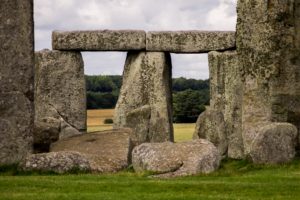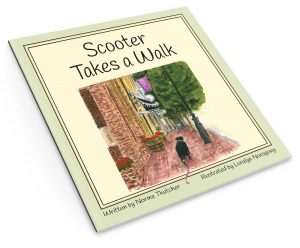
Photo courtesy of Inja Pavlic / Unsplash
“You know, I never really lied. I just told the truth differently.” –Merrit Malloy
I’ve heard many lies in my life—probably more than my fair share because of the years spent in foodservice credit management.
With technology advances it became increasingly difficult for my customers to offer “the check is in the mail” excuse. Ability to pay immediately online via checking account or credit card left little wiggle room.
But people with companies in financial difficulty could sometimes find a shade-of-grey truth around even that by blaming the technology “I don’t know what’s wrong with YOUR system, but I paid online two days ago!”
Well, yes they did. But they post-dated the online payment for ten days into the future. I referred to that as the Wimpy covenant: “I’d gladly pay you Tuesday for a hamburger today.”
Why do we lie? Or fib or bend the truth or provide a misconception of a truth by omitting some details? Or as is popular in politics these days, we don’t lie, we simply misspeak.
No matter what label we slap on it to provide justification to ourselves, we’re lying.
When I trained sales people about our company’s credit management policies and procedures, I’d close the training the same way each time:
“Be 100% honest and forthright with me and the Credit Analyst who handles your accounts. Tell us the truth—always—no matter what it is. If you lie and are caught (and we WILL catch you), you’ll have burned a bridge that cannot be rebuilt.”
And then I quoted them a line from John Steinbeck’s East of Eden.
“I know that sometimes a lie is used in kindness. I don’t believe it ever works kindly. The quick pain of truth can pass away, but the slow, eating agony of a lie is never lost.“
Hearing the truth about their speaking skills grows to be one of the favorite aspects of class for my students. I say, “grows to be” because initially most people shy away from hearing about distracting mannerisms, a monotone voice, or a message so convoluted the audience has difficulty following it.
As we built a team of learners, we find strength in having others we trust gently uncover unknown weaknesses. We learn to “always value feedback because we don’t know what we don’t know.”
But I’ll admit I do see poet Merrit Malloy’s side to this as well; not lying but telling the truth “differently.” Because in the poem, she goes on to explain that she might say something is beautiful when it’s just pretty or that something is fascinating when it’s only interesting.
My admonition to tell the truth isn’t a license to say everything you might be thinking and hurt someone. We need to remember to be kind even as we speak the truth.
“I think it would be helpful to look at another solution,” is a much better response to a friend than, “That’s the stupidest idea you’ve ever had.”
Even if it is.
And that’s the truth.




I like the saying I saw on a Salada Tea Bag…”Be kind whenever possible, it is always possible”. I have been wondering about you. Haven’t seen anny blogs for a coupe of weeks. Glad to have you back..
To any Comcast subscribers who have missed some posts, please read this:
Comcast apparently decided it didn’t like emails from Lifted Up for about three weeks, so any of my readers who are Comcast subscribers missed out on some posts. So Nancy (using Comcast) hadn’t even seen the article about her until my sister (also Comcast) reported not getting my posts! So if anyone out there in Comcast-land thought I stopped writing for a couple weeks, nope, not true! You can read past posts by visiting my website at https://liftedup.us. At the menu, choose LIFTED UP BLOG. From there you can just scroll down to see prior posts. To see even older ones, click on OLDER POSTS at the bottom left.
I am a Comcast subscriber who never missed any of your posts. Not sure why others in my area didn’t get the notifications.
The problem appears to be subscribers who have an email address of @comcast.net. So even though you get your internet from Comcast, you get your email from Yahoo. Sorry to all that I wasn’t clear.
While Mark Twain was certainly not one of my mentors, I do like his quip: “When you tell the truth, you don’t have to remember anything”!!! One lie begats another, and it mushrooms uncontrollably.
Norma, I still like the scenario played out by my two granddaughters when they were small: “Do you swear to tell the truth – everything BUT the truth, so Holy God?” The younger granddaughter’s answer: “What?” To which the other granddaughter answered: “Just say YES!”
My favorite, though, is “Unspoken words are never regretted.”
Great family stories never grow old. When they can make you laugh after many years, you know they’re great.